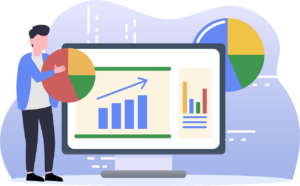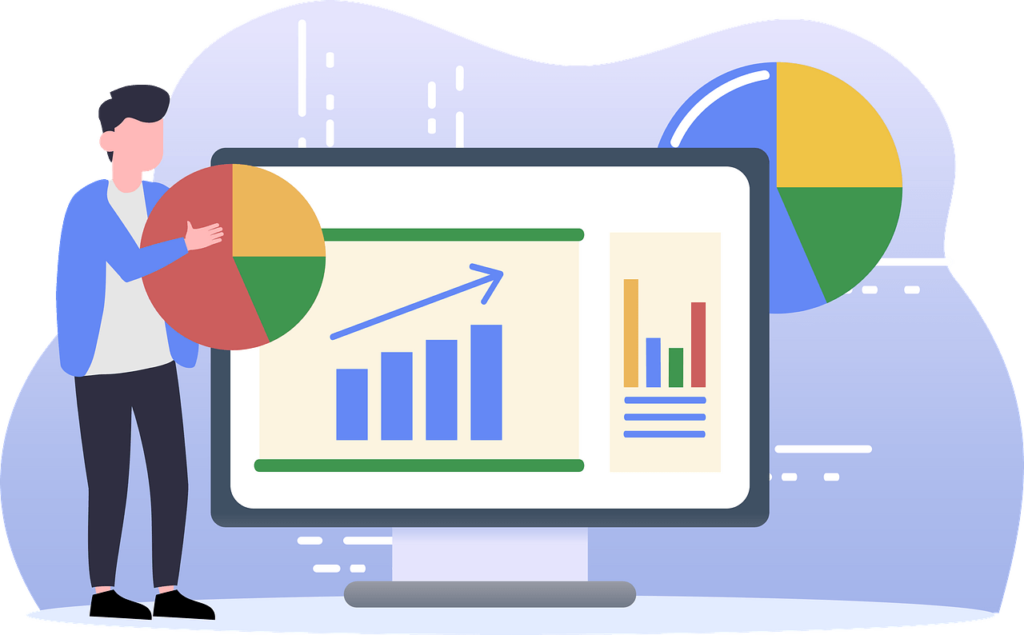Introduction:
Data science has emerged as a transformative field, driving innovation and insights across various industries. However, amidst its rapid growth and increasing prominence, several misconceptions about data science have also taken hold. In this article, we will debunk the top 10 misconceptions surrounding data science, shedding light on the realities of this dynamic discipline. By dispelling these myths, we aim to provide a clearer understanding of what data science truly entails and its potential impact.

Misconception: Data Science is Solely about Programming
One common misconception is that data science is primarily about programming. While programming skills are essential in data science, they are just one aspect of the broader skill set required. Data scientists also need expertise in statistics, mathematics, domain knowledge, data visualization, and problem-solving to effectively analyze and derive insights from data.
Misconception: Data Science is Only for Big Companies
Another misconception is that data science is only relevant and applicable to large corporations with massive data sets. In reality, businesses of all sizes can benefit from data science techniques. Small and medium-sized enterprises can leverage data analytics to gain valuable insights, improve decision-making, optimize operations, and enhance customer experiences.
Misconception: Data Science Can Replace Human Judgment
Data science empowers decision-making, but it cannot completely replace human judgment. Data scientists use data to inform and support decision-making processes, but ultimately, human intuition, experience, and critical thinking are still crucial in interpreting results, contextualizing findings, and considering ethical implications.
Misconception: Data Science is All About Predictive Modeling
While predictive modeling is a significant component of data science, it is not the sole focus. Data science encompasses a broader range of techniques, including exploratory data analysis, descriptive statistics, data visualization, clustering, and classification. These techniques help gain insights, identify patterns, and extract meaningful information from data.
Misconception: Data Science Is Only for Math and Statistics Experts
While a strong foundation in math and statistics is valuable in data science, it is not the exclusive domain of experts in these fields. Data science is an interdisciplinary field that welcomes professionals with diverse backgrounds, including computer science, engineering, economics, and social sciences. Collaboration between domain experts and data scientists is vital to extract meaningful insights.
Misconception: Data Science is a One-time Solution
Data science is an ongoing and iterative process rather than a one-time solution. It involves collecting and analyzing data, building models, refining approaches, and continuously improving outcomes. Data scientists work closely with stakeholders to address evolving business needs and provide actionable insights over time.
Misconception: Data Science is 100% Objective
While data science strives for objectivity, it is subject to inherent biases. Biases can arise from biased data collection, sampling techniques, or the influence of preconceived notions during the analysis. It is crucial for data scientists to be aware of these biases and take steps to mitigate them to ensure ethical and unbiased decision-making.
Misconception: Data Science Can Solve Any Problem
Data science is a powerful tool, but it is not a panacea for all problems. Some challenges may not have sufficient data or be suitable for data-driven analysis. Data scientists need to carefully assess problem domains and consider the limitations and assumptions of data science techniques to ensure appropriate application.
Misconception: Data Science is all about Black-Box Algorithms
While machine learning algorithms are widely used in data science, they are not always black boxes. Interpretability and explainability are crucial, especially in domains with regulatory or ethical considerations. Data scientists strive to strike a balance between predictive accuracy and model transparency to ensure trust and understanding.
Misconception: Data Science Is Just a Trend
Data science is not a passing trend; it is here to stay. The exponential growth of data and the increasing demand for data-driven insights ensure that data science will continue to be an essential discipline. As technology evolves, data science will adapt and expand, playing a crucial role in shaping our data-rich future.
Conclusion:
By debunking these top 10 misconceptions surrounding data science, we have gained a clearer understanding of its nature, scope, and potential. Data science is a multidimensional field that requires a combination of skills, collaboration, and a nuanced understanding of its capabilities and limitations. As we embrace the realities of data science, we can harness its power to drive innovation, solve complex problems, and unlock the vast potential hidden within data.



